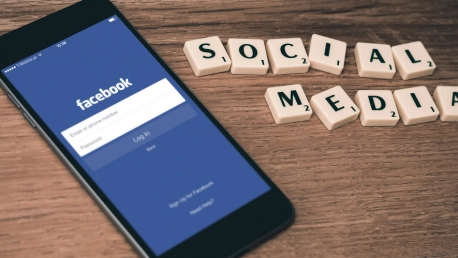The COVID-19 pandemic has taken the world by storm and ultimately changed the way people work, live, and interact with each other. As working remotely became a fact of life in the new normal, social media platforms also became more and more important—primarily because they were a way of maintaining meaningful connections with family and friends while social distancing. However useful, the use of social media platforms might also have some negative consequences on peoples’ emotions, beliefs, and actions. From cyberbullying to depression and anxiety, social media networks have been known to have multiple negative effects on peoples’ lives. But is it possible that social media platforms are also harming our democracy?
According to Facebook whistleblower Frances Haugen, the answer is yes. Haugen said that Facebook can “harm children, stoke division and weaken our democracy.” She teamed up with journalists from The Wall Street Journal to expose the various ways in which Facebook might be harmful for users across the world. The former product manager at Facebook said the company’s algorithms are dangerous, while also alleging that the top management is aware of the threats, but prefers to put profits before users. Frances Haugen went on to ask Congress to address these issues, and, as she testified before a Senate hearing, she also provided American policy-makers with a road map for doing just that.
How Past Problems Might Remain Unsolved
It’s not the first time that Facebook finds itself at the center of a scandal that puts the company at odds with both freedom of choice and democracy. In fact, three years ago, Cambridge Analytica whistleblower Christopher Wylie said that the company he used to work for had exploited Facebook to harvest millions of profiles, discovering their traits and later using them to influence their actions. The data could have been used not only to understand the psychology of various Facebook users, but also to influence their votes in favor of Donald Trump in the US presidential election, and Brexit.
As a consequence of the Cambridge Analytica scandal, Facebook ultimately agreed to pay a $643,000 fine to the U.K.’s Information Commissioner’s Office. According to the Information Commissioner’s Office, the tech giant broke the data protection laws by mishandling users’ personal data and allowing Cambridge Analytica to use them without the users’ consent. While Facebook founder & CEO Mark Zuckerberg did appear before Congress and publicly apologized for the breach, many of the problems surrounding Facebook might have remained unsolved, according to Frances Haugen.
A Different Kind of Facebook Whistleblower
As a former data scientist and product manager at Facebook, Frances Haugen might be more than just another Facebook whistleblower. In fact, this new scandal may be the biggest threat in the tech giant’s history, as the accusations against Facebook are now coming from a former manager, who says she wants to fix the company, not harm it. Whatever the reasons behind her decision, Haugen testified before a Senate subcommittee saying Facebook may harm children, undermine the social fabric, and ultimately pose a threat to democracy in its pursuit of growth and profit.
Maybe even more important is the fact that Haugen went on to say the company has the knowledge necessary to make its Facebook and Instagram platforms safer for users, but simply decided against the changes in order to keep growing and to protect its profits. The former product manager also claimed Facebook intentionally conceals relevant information not only from the public, but also from the US Government and other governments around the world. “The result has been more division, more harm, more lies, more threats, and more combat. In some cases, this dangerous online talk has led to actual violence that harms and even kills people,” Haugen said.
The Truth about Social Media
While many wonder if social media platforms are a good tool for maintaining social connections with family and friends—or, as Haugen says, one that might harm children, stoke division, and weaken democracies across the world—the answer might be more complex than they think. Despite the fact that social media platforms come with undeniable advantages for users everywhere, the disadvantages continue to multiply. In fact, studies show that social media platforms have developed in a way that makes the spreading of fake news and propaganda easier, while also empowering disruptive voices, ideologies, and messages. However, that doesn’t mean people should give up on social media platforms, but rather that they should fight to help these platforms understand and serve their needs.









